Shvetaketu
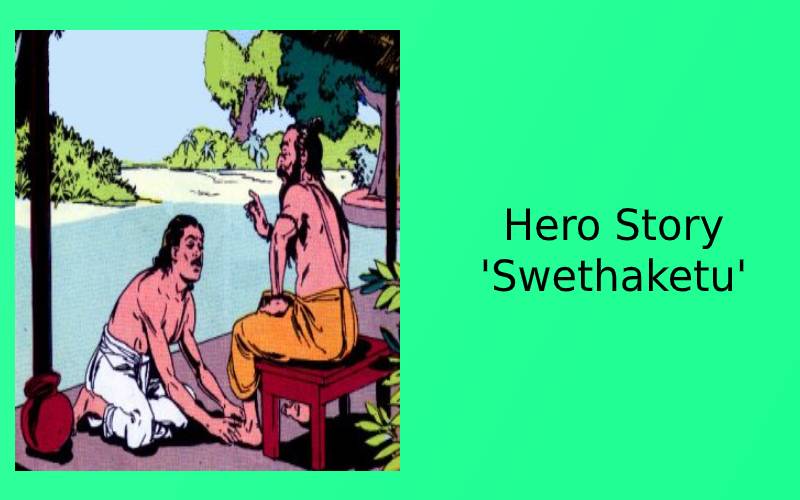
Shvetaketu’s story is also the story of the Mahavakya ––‘Tatvamasi’ ('Tat-Tvam-Asi'). This story, found in the Chaandhogya Upanishad, is in the form of a conversation between a father and son and effectively narrates the process of imparting ‘true’ knowledge to a well-educated young man.
Shvetaketu was the son of Uddaalaka Aaruni. Though a popular teacher himself, Uddaalaka Aaruni sent his son to be trained by another guru. Shvetaketu was a sharp learner. After twelve years, he returned to his father’s hermitage, having learnt all that was there to learn. Or, at least, he thought so.
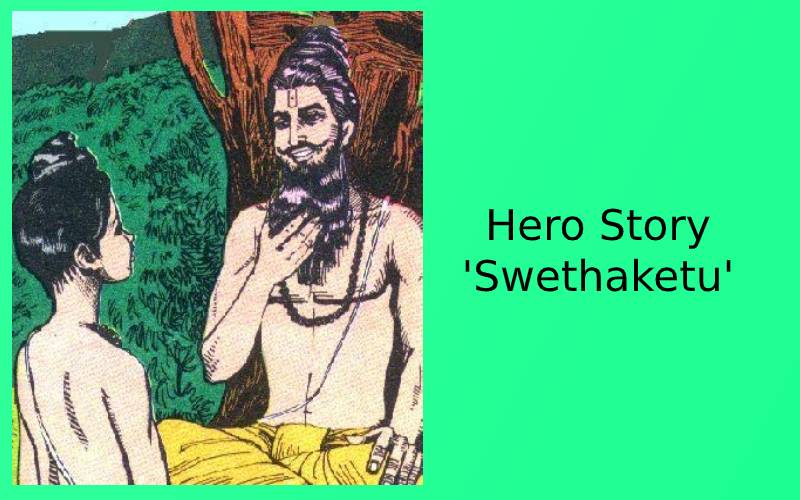
Uddaalaka Aaruni was delighted to have his son back. But, as his son walked towards him, he noticed a swagger in Shvetaketu’s gait. That set him worried. He realized that Shvetaketu had not acquired the knowledge of the Brahman.
Shvetaketu came near his father and offered his respects. After giving his blessings, Uddaalaka Aaruni asked him, “Son, have you received that education that helps you see what cannot be seen, hear what cannot be heard and know what cannot be known?”
Shvetaketu was surprised. He had never heard of anything like this. He said, “Father! What is that? My guru has not taught me that.”
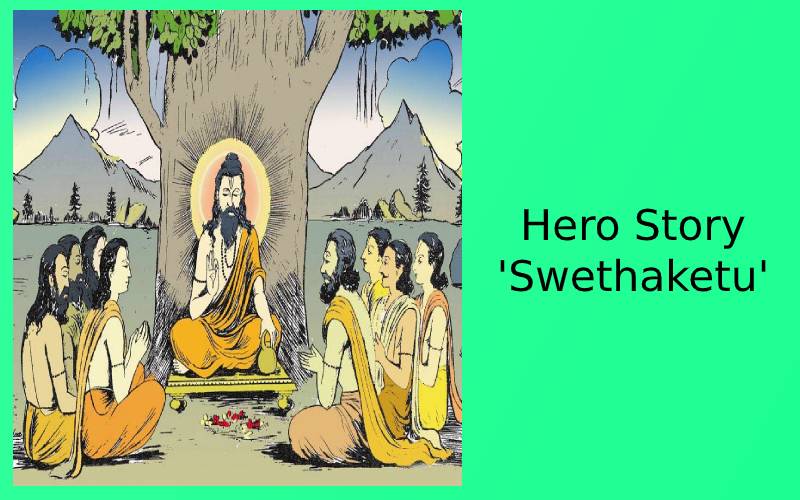
Uddaalaka Aaruni said, “That is the knowledge of all–pervading Brahman.”
“Father! Please tell me more about that Brahman.”
“My child! The Brahman is the basis of everything. For example, when you see an ornament made of gold, you know that gold pervades it. That ornament cannot exist without gold. If you see a mud pot, you know that mud pervades it. It cannot exist without mud. Like that, the creation cannot exist without Brahman.”
“Oh! What does Brahman look like, father?”
“It cannot be described, my son. It is the smallest of the small and the largest of the large. It cannot be seen with our eyes. But it is there everywhere.”
“I don’t understand, father!”
“Wait! I will explain. Get me a fruit of the banyan tree.”
“Here, father!”
“Just take out one seed from it.”
“I have taken it. It is very small.”
“Okay, now split it.”
“I have done it, father.”
“What do you find inside the seed?”
“There is nothing there.”
“Is that so? Then, where did this huge banyan tree come from?”
“From this seed, only.”
“Could you see this huge tree when you split the seed and looked into it?”
“No, father!”
“But this little seed only contains the embryo for this huge tree with all its branches and leaves. Do you agree?”
“Yes, father. I seem to understand. Can you give me more examples?”
“Sure! Bring water in a container.”
“Here! I have brought it, father!”
“Put some salt in it and leave it there. Come after some time.”
Shvetaketu came after some time and looked into the container. He said,
“Father! I can’t see the salt I put into this container.”
“Oh! It would have dissolved into it. Now drink the water from the upper portion of the container."
“It tastes salty, father!”
“Now, drink from the middle portion.”
“That is also salty, father!”
“How about the water from the bottom portion?”
“That also has the same taste.”
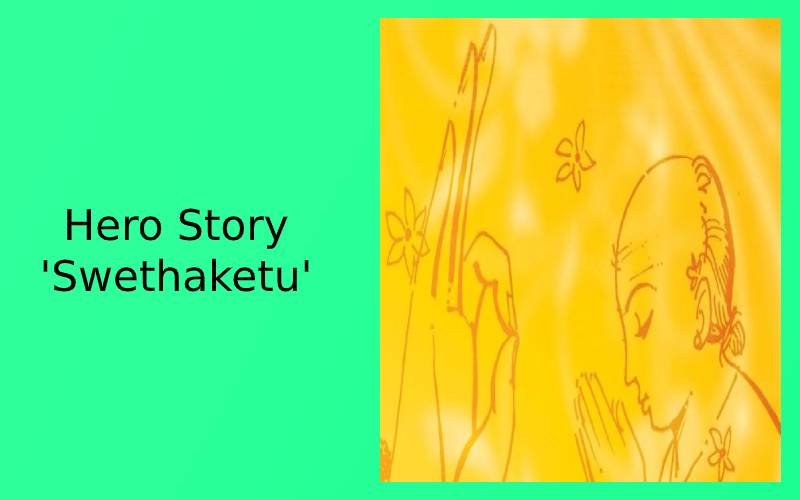
“Now, you are not able to see the salt in this water. It has permeated the water in the container. But, by tasting it, you have realized its presence. In the same way, the Brahman that pervades everything, cannot be seen. But we can feel its presence. Everything that you see around is that Brahman. You are that Brahman. Tat Tvam Asi.” (‘Tatvamasi’ – is one of the Mahavakyas that conveys the essence of advaita) (Tat – that , tvam – you, asi – are).
Uddaalaka Aaruni continued, “It is that Brahman that is in you. If you make sincere efforts, you will be able to feel its presence and realize that you are the same as that. Once you get that realization, you will be able to see what cannot be seen, hear what cannot be heard and know what cannot be known.”
“I understood, father!” Shvetaketu prostrated in front of his father. He was a changed man. Humility had replaced his arrogance.
Later, this Shvetaketu grew into a great seeker and became a great guru too.

B. Ramadevi is a teacher of English and a freelance reviewer of music and dance. Being a polyglot, she gets inputs from various sources and loves to share it with interested people. She contributes articles for Verandha Club on characters from Indian scriptures and classics.
NEXT ARTICLE
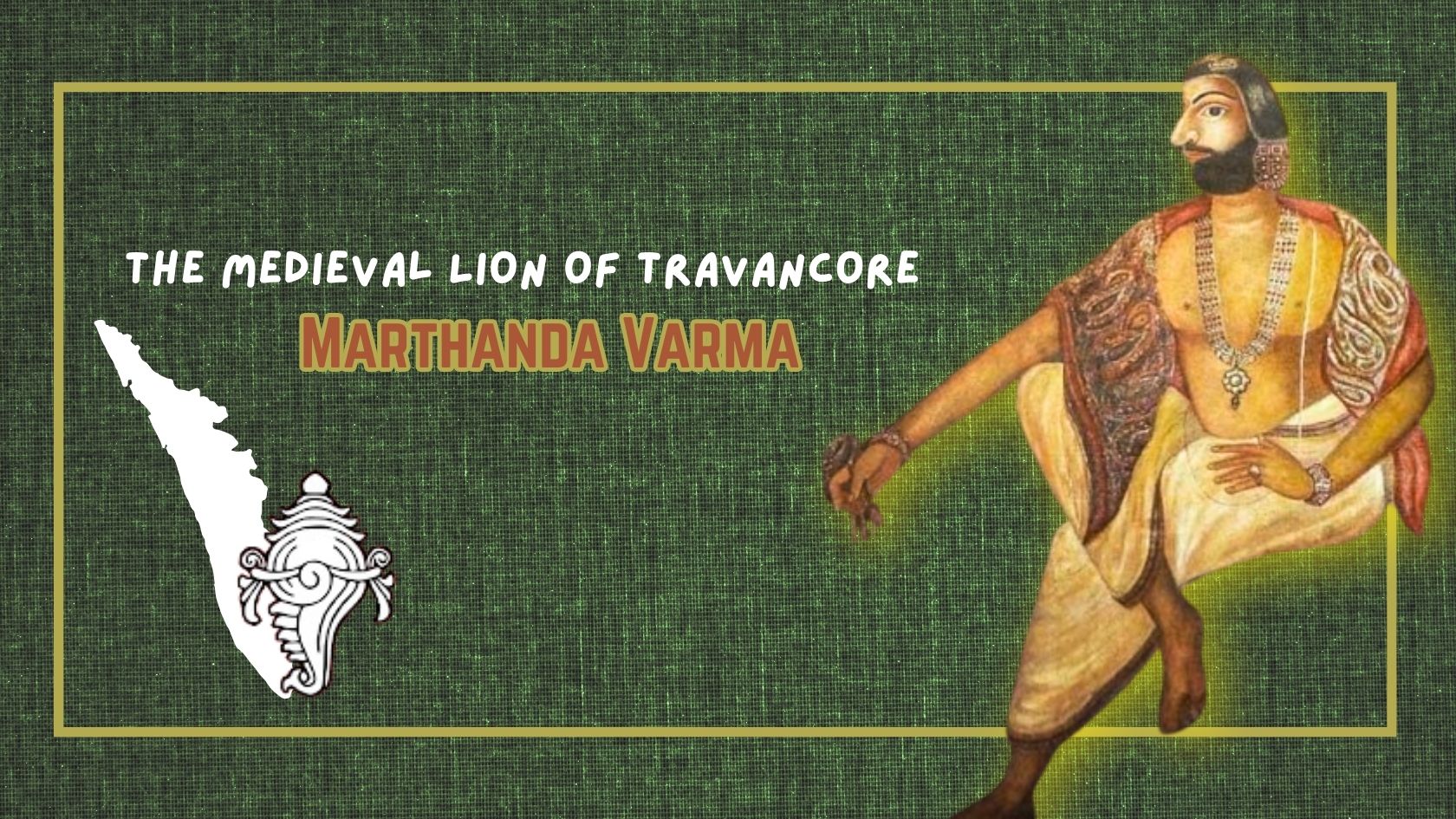
Shri Ramachandra Prasad's captivating narrative and the hot chai that was served at the right time transported me to ancient Kerala, where the extraor...
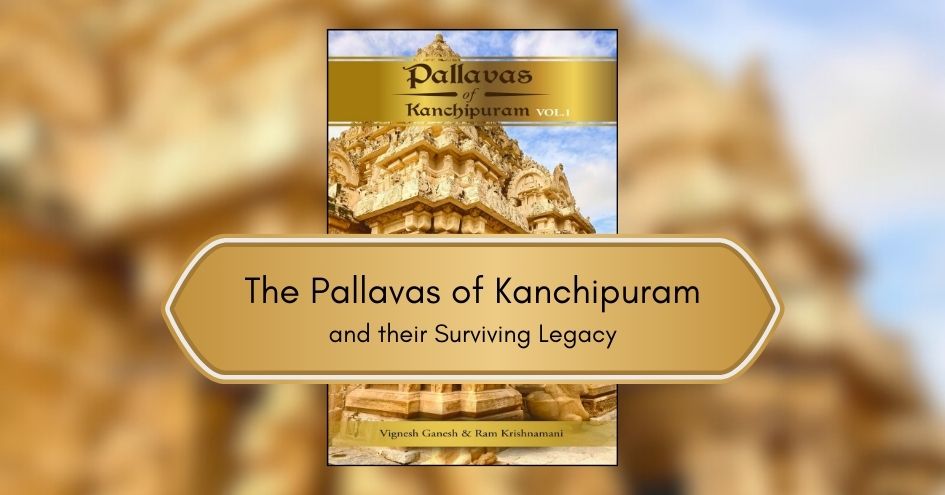
Introduction In Bharatvarsha, History is not the account narrated by victors. It is the record left behind by survivors. The study of Indian History...

It is the first-half of the 8th Century C.E. in South India. The Pallava kingdom possesses strength and prosperity with some of the greatest monument...